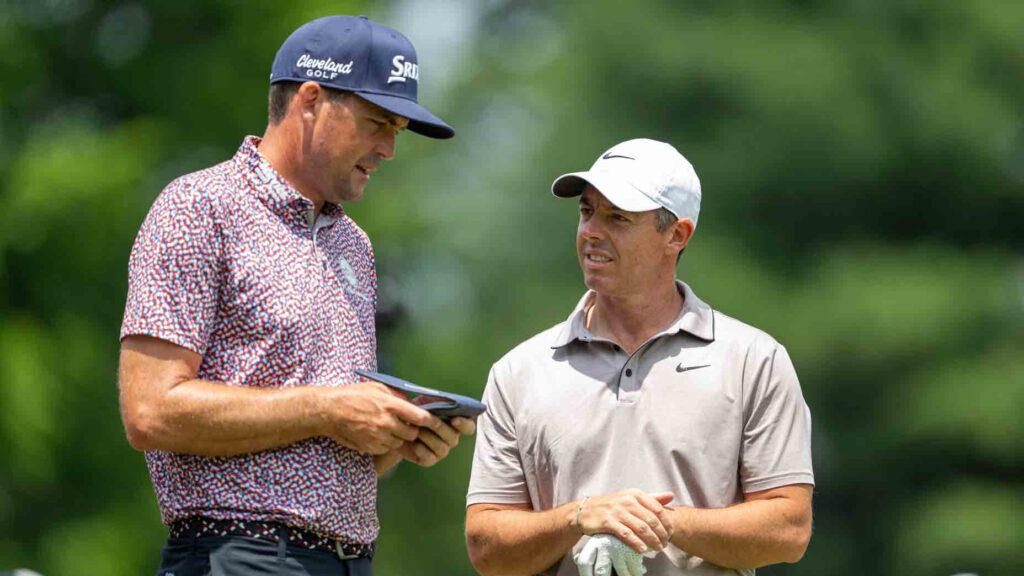Rory McIlroy: The Case Against Being a Playing Captain at the Ryder Cup
The Ryder Cup, one of golf’s most prestigious events, often invites discussions regarding leadership roles, particularly that of the captain. Recently, Rory McIlroy, a stalwart in the golfing community, addressed his stance on being a playing captain—a title he has repeatedly turned down. This article dives deep into McIlroy’s reasoning, the implications of such a dual role, and why he believes captains should focus solely on leadership during this critical tournament.
McIlroy’s Strong Stance
“I just said, ‘No way,’” McIlroy proclaimed during the Genesis Scottish Open last year when asked about the possibility of being a playing captain. His firm position is based on logical reasoning—captains face an overwhelming array of responsibilities that can detract from their performance. “If you want to be the best captain you can be, you can’t play. And if you want to be the best player you can be, you can’t captain,” he stated. This distinction is crucial in understanding the dynamics of leadership and performance within the context of the Ryder Cup.
The Responsibilities of a Ryder Cup Captain
The role of a Ryder Cup captain extends far beyond merely preparing for the event. Captains must juggle various commitments, including media obligations and meetings with vice captains and officials from the PGA. McIlroy underscored this by pointing out that the media commitments alone are immense. The pressure to perform in front of the cameras can divert attention away from the strategic planning required to lead a team effectively.
Media Obligations: A Burden for Captains
In McIlroy’s assessment, the media commitments can be overwhelming. For example, Keegan Bradley, the newly appointed U.S. captain, has participated in 20 events this season and has been interviewed numerous times by various media outlets. This influx of media attention coupled with additional press conferences during the Ryder Cup week creates a formidable challenge. McIlroy explained that the captain must be fully focused to lead effectively, a luxury difficult to achieve when simultaneously handling media requests.
The Meetings: Planning and Strategy
Another crucial aspect of a captain’s role is the extensive meetings they must conduct with vice captains and the PGA of America. McIlroy noted, “You think about the extra meetings that the captains have to do.” These meetings require focus and strategy, taking time away from the captain’s game. As Bradley himself indicated, the mental toll of constant planning can become distracting, affecting overall performance during the tournament.
The Art of Public Speaking
A lesser-discussed but equally vital duty of a Ryder Cup captain is crafting speeches for the opening ceremony. McIlroy referenced how European captain Luke Donald wowed the audience in 2023 by delivering his speech in Italian, showcasing the importance of this responsibility. The mental energy and creativity needed to deliver impactful speeches often become overlooked aspects of a captain’s obligations, adding another layer of complexity to the role.
Flexibility in Player Performance
McIlroy highlighted a practical consideration: the limited playing opportunities available to a captain during the Ryder Cup itself. “The captain isn’t going to be on the course all day,” he explained, meaning they can only compete in a fraction of the matches. This presents a strategic limitation—if a captain is performing well, they may miss competitive play opportunities that could benefit the team.
Balancing Leadership and Performance
Balancing the dual roles of player and captain could lead to conflicts of interest and distractions. McIlroy noted that a player needs the flexibility to play multiple sessions and contribute to the team’s success. This flexibility is a crucial element often underestimated by those advocating for the dual role. The ultimate goal is team success, and having a dedicated captain allows for a streamlined leadership approach without compromising a player’s on-course performance.
Bradley’s Perspective: A New Era of Captaincy
Despite McIlroy’s firm stance, Keegan Bradley’s recent appointment as the U.S. captain invites discussions about the dual role. Bradley acknowledged, "We don’t know how this could work." His candid perspective signifies that while the challenges are clear, the potential outcomes of a playing captain remain largely unexplored. His confidence in leaning on experienced vice captains is a way to mitigate the potential challenges posed by the dual role.
Future Discussions and Speculations
As of now, Rory McIlroy stands firm in his belief that serving as a playing captain is not feasible, given the level of commitment required on both fronts. The conversation surrounding this topic will likely continue as Keegan Bradley’s team formations come to light. The tension between tradition and innovation in golf will persist, but one thing remains clear: effective leadership is paramount for a successful Ryder Cup.
Conclusion: The Essence of Effective Leadership
In conclusion, Rory McIlroy’s insights into the role of a Ryder Cup captain invite profound contemplation about the intersection of leadership and performance in the world of sport. While the allure of being a playing captain may be tempting for some, the sacrifices involved often outweigh the romantic notions associated with such a role. McIlroy advocates for a clear distinction between player and captain to ensure both individual performance and team success during one of golf’s most celebrated tournaments.
In a sport where each decision and performance can sway the outcome, focusing on dedicated leadership remains invaluable. As the golfing community prepares for upcoming Ryder Cups, McIlroy’s viewpoints may serve as a guiding principle for future captains and players alike.


